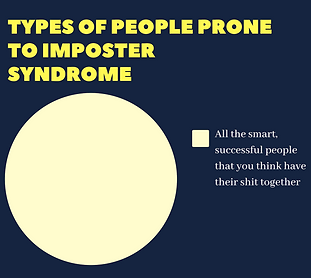OVER IT. OVER IT. OVER IT. OVER IT. OVER IT. OVER IT. OVER IT. OVER IT. OVER IT. OVER IT. OVER IT. OVER IT. OVER IT. OVER IT. OVER IT. OVER IT. OVER IT. OVER IT. OVER IT. OVER IT. OVER IT. OVER IT. OVER IT. OVER IT. OVER IT. OVER IT. OVER IT. OVER IT. OVER IT. OVER IT. OVER IT. OVER IT. OVER IT. OVER IT. OVER IT. OVER IT. OVER IT. OVER IT. OVER IT. OVER IT. OVER IT. OVER IT. OVER IT. OVER IT. OVER IT. OVER IT. OVER IT. OVER IT. OVER IT. OVER IT. OVER IT. OVER IT. OVER IT. OVER IT. OVER IT. OVER IT. OVER IT. OVER IT. OVER IT. OVER IT. OVER IT. OVER IT. OVER IT. OVER IT. OVER IT. OVER IT. OVER IT. OVER IT. OVER IT. OVER IT. OVER IT. OVER IT. OVER IT. OVER IT. OVER IT. OVER IT. OVER IT. OVER IT. OVER IT. OVER IT. OVER IT. OVER IT. OVER IT. OVER IT. OVER IT. OVER IT. OVER IT. OVER IT. OVER IT. OVER IT. OVER IT. OVER IT. OVER IT. OVER IT. OVER IT. OVER IT. OVER IT. OVER IT. OVER IT. OVER IT. OVER IT. OVER IT. OVER IT. OVER IT. OVER IT. OVER IT. OVER IT. OVER IT. OVER IT. OVER IT. OVER IT. OVER IT. OVER IT. OVER IT. OVER IT. OVER IT. OVER IT. OVER IT. OVER IT. OVER IT. OVER IT. OVER IT. OVER IT. OVER IT. OVER IT. OVER
OVER
IT.
OVERLOOKED_WOMEN
What is Impostor Syndrome?
Impostor Syndrome is the feeling of inadequacy despite evidence of past successes and achievements. While this phenomenon is experienced across the world, with 70% of the US population claiming symptoms of doubt in their abilities at one point in their life, women and girls tend to feel the weight of Impostor Syndrome more than their male counterparts. We have to wonder how these negative thoughts towards one’s own performance and abilities, are compounded by other forms of discrimination and bias in the workplace, impacting confidence and potentially hindering women’s overall performance.
Who Experiences it & Why?
A number of factors can increase his or her's susceptibility to Impostor Syndrome, namely the nature of his or her environment and those within it.
-
If an individual is surrounded by people who look and sound like him or her, he or she is more likely to feel confident. Likewise, if an individual is surrounded by people who do not look or sound like him or her, he or she is likely to feel less confident in the capabilities. This lack of confidence can ultimately contribute to feelings of inadequacy and cause him or her to question himself or herself.
-
Additionally, the way in which boys and girls are socialized to behave at a young age affects their likeliness to be more risk takers or more risk averse, girls taking on the latter attribute. With a fear of risk taking instilled in women at a young age, the workplace becomes a more difficult environment to survive as he or she simultaneously doubt his or her capabilities and fear taking risks.
-
Lastly, the lack of visibility and of representation, particularly women and minorities, portrayed by the media has contributed to the perception of inadequacy by reinforcing sentiments. Since women rarely see positive representations (or any representations at all) of women in leadership positions, it is hard for women to believe they deserve to be where they are.
Achievement-Related
Tasks
Anxiety
Self-Doubt
Worry
Perceived Fraudulence
Increased Self-Doubt
Depression
Anxiety
Over-Preparataion
Procrastination
Accomplishment
Effort
Relief
Luck
Positive Feedback
Discount Positive Feedback
IMPOSTOR
CYCLE
So Why Does This Matter?
Sakulku, J. “The Impostor Phenomenon”. The Journal of Behavioral Science, Vol. 6, no. 1, 1, pp. 75-97, doi:10.14456/ijbs.2011.6.
The Impostor Syndrome has been used to understand the dearth of women in "thought leadership" positions such as STEM fields, corporate boards, and other administrative positions. Studies have shown many detrimental effects of the self-perceived intelligence fraudulence feeling induced by the Impostor Syndrome within the workplace, such as failure to ask for higher salaries or promotions; increased anxiety about tasks, leading to overworking; increased depressive feelings as self-doubt continues; and rejection of positive feedback that perpetuates the "Impostor Cycle," illustrated below. We are here to celebrate women who have achieved great successes to both acknowledge those who have been overlooked and inspire others who may be unsure but are fully capable of success.

.png)
.png)
.png)